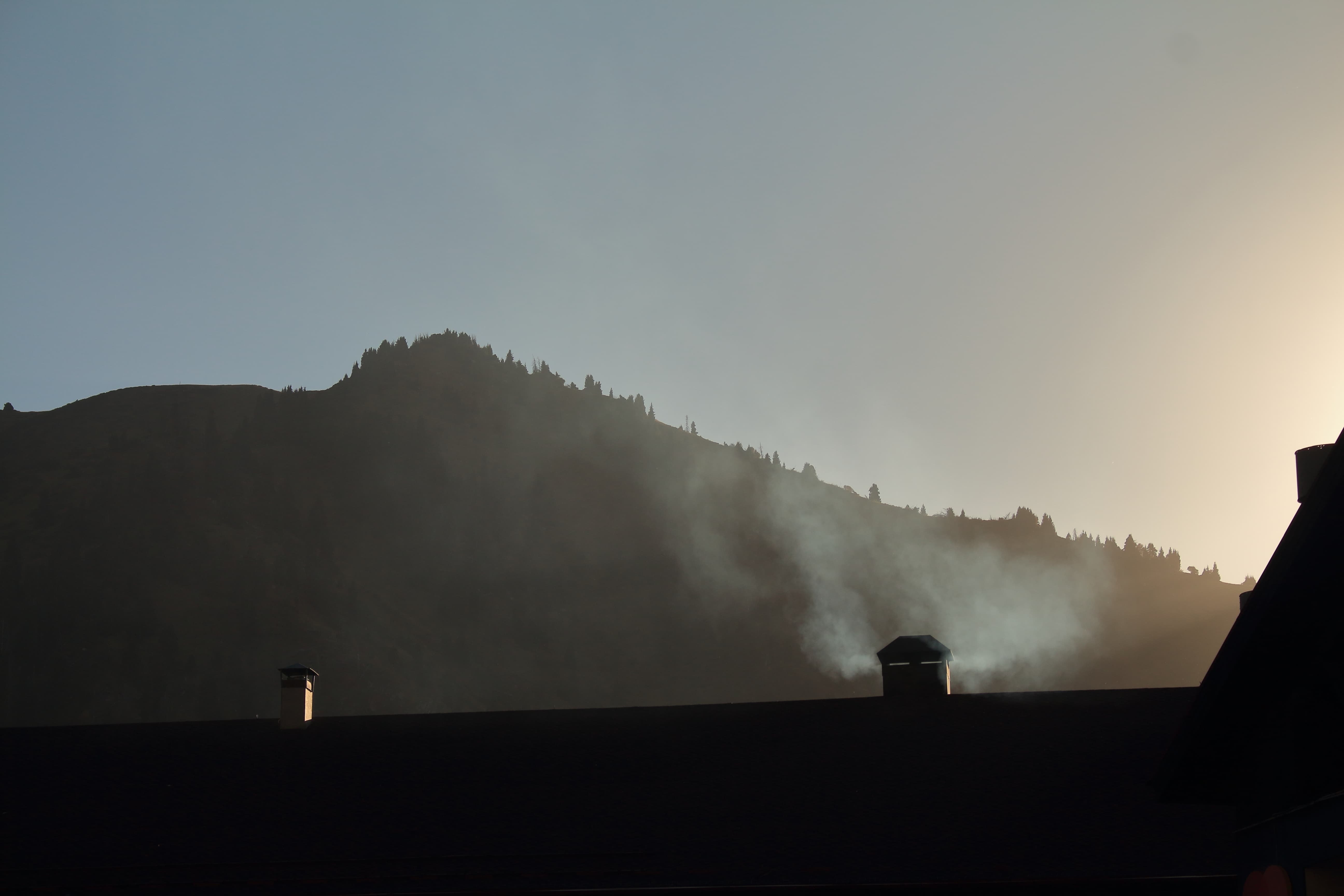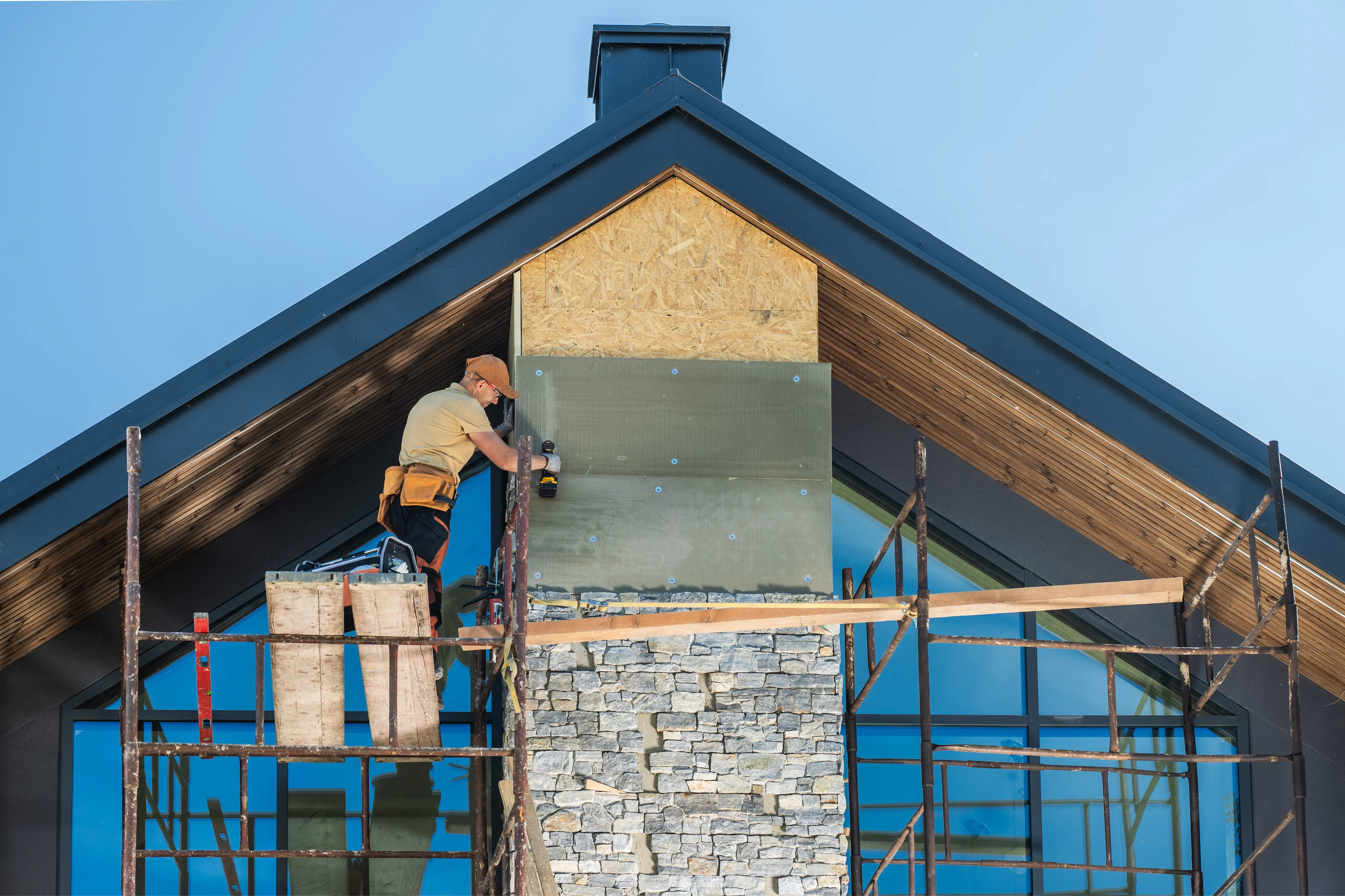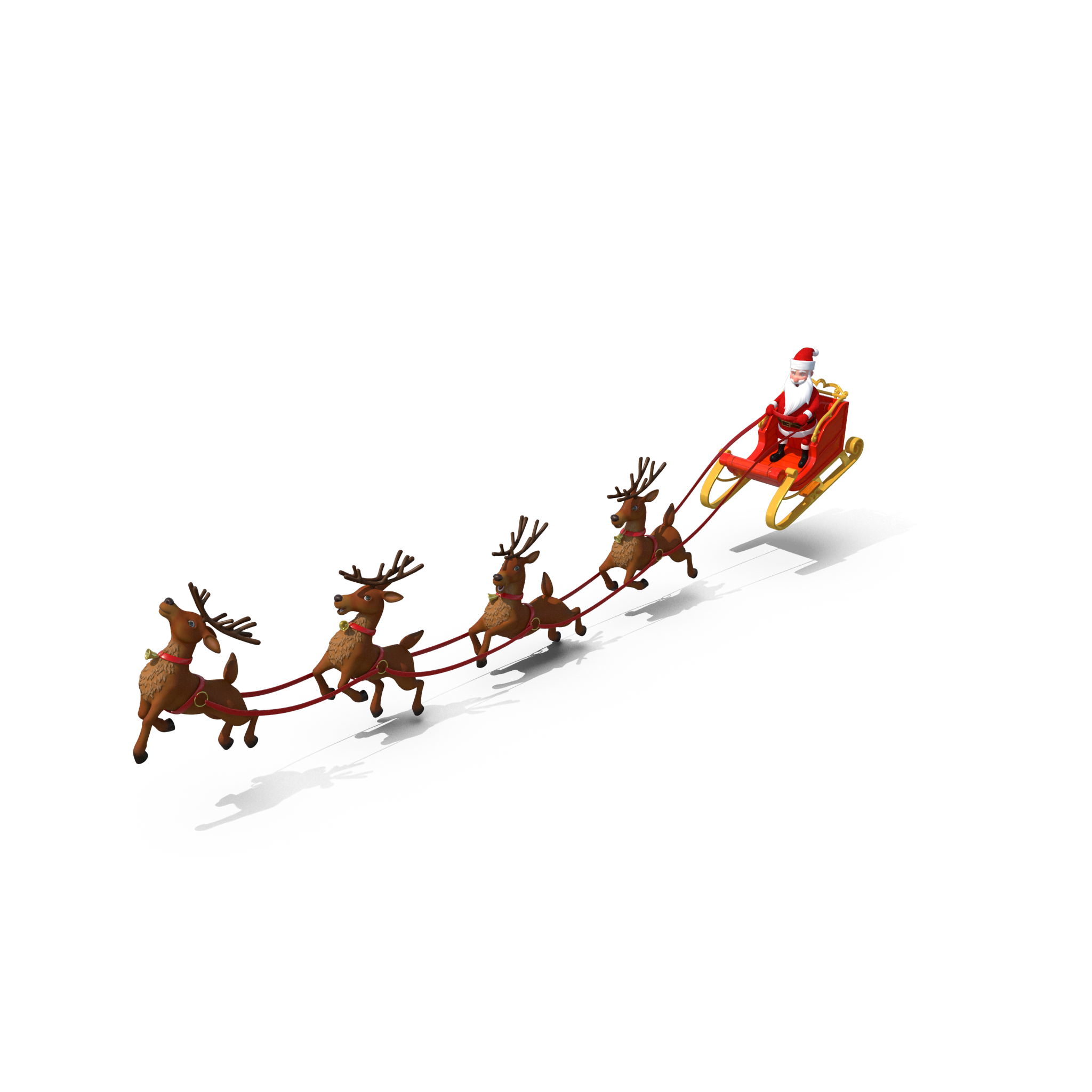Why Animals Keep Coming Back to Your Chimney (And What Actually Stops Them)
informed decisions, maintain your property, and ensure long-lasting protection.

When squirrels, birds, raccoons, and other animals take a liking to your chimney, they’ll move in without notice. They might even invite their entire brood, and if they’re not in there now, they’re probably casing it for their next move.
Why do animals love your chimney? Let’s talk about why they keep getting in and how to stop them from returning.
Why do animals get into chimneys?
For animals, the chimney is prime real estate. Chimneys are warm, dry, dark, and best of all, they’re high up and safe from predators. This makes them a luxury penthouse suite of nesting spots. Birds such as chimney swifts love the vertical shelter, while squirrels and raccoons find warm chimney bricks ideal for a nursery. Bats also love the quiet, undisturbed, and pitch black recesses of unused chimneys.
Once animals find your chimney habitable, they remember it. They may move away between seasons, but unless you’ve made changes, they’ll be back.
Signs there’s an animal in your chimney
How can you tell an animal is squatting in your flue? These are some signs you’ve got unwelcome guests up your chimney:
- Chirping, chattering, cheeping, and other animal sounds, especially at dawn or dusk
- Strange smells coming from the fireplace
- Bits of debris, feathers, or droppings in the firebox
- Smoke backing up (because the flue is blocked by a nest)
Aside from the eerie noises and smells, animals taking permanent shelter in your chimney can cause more serious harm to your health and your property. Squirrels, raccoons, and rodents can carry fleas, ticks, rabies, roundworms, and other parasites into your home. Bird and bat droppings can cause histoplasmosis, a fungal infection of the lungs that may be fatal in severe cases.
Constant clawing, scratching, or pecking on the walls causes physical damage that makes the chimney prone to cracks, water seepage, and other structural issues. Nests that block the airflow also increase the risk of fire.
When all signs point to animal encroachment, you’ll want to handle it fast before things get out of hand.
DIY animal repellents that don’t work
One search on Google about “animals in my chimney” would give you a long list of suggestions. Let’s have a quick look at the ones that don’t always work.
- Mothballs: Our grandparents may have used these to repel insects and other critters, but they don’t do much for chimney animals. Their odor will just disperse outwards and won’t be able to keep wildlife away. Mothballs are also now considered illegal to use because of their adverse effect on human health, including the risk of nasal cancer.
- Loud noises: Many animals are startled by sudden loud noises and may scamper away. However, they’ll likely be back the next day. Playing loud noises constantly won’t deter them from nesting in your chimney either. Most animals will eventually get used to the sound.
- Natural repellents: Garlic spray, peppermint oil, cayenne pepper, vinegar, and other strong-smelling spices irritate the olfactory nerves of animals and may drive them away. But before you brew a concoction, know that different animals have different reactions to different odors. What repels birds may not repel rodents. Also, you need to be consistent in using these repellents if you don’t want the animals coming back.
- Smoke: Some advise lighting a fire to smoke the animals out. However, this can be dangerous, especially if there are nests or debris blocking the chimney.
These tricks might spook animals temporarily, but not enough to stop them from coming back.
How to keep animals out of your chimney for good
If you want to keep wildlife out of your chimney permanently, you need to go with proven solutions. Here's what chimney pros actually recommend:
- Let chimney sweeps or animal control handle wildlife.
If wildlife has already settled, a certified chimney tech can remove them humanely (or call wildlife control) before fitting the right guard to stop future invasions. Call professionals at Brown Chimney to check and repair damages caused by the animals so your chimney stays safe to use.
- Install the right kind of chimney cap.
To keep animals out, install a chimney cap. Not just any cap will do, though; you need a professionally fitted, critter-proof chimney cap with a heavy-duty mesh screen. Go with stainless steel for durability. Cheap ones rust, warp, and become useless in a season or two, costing you more in the long term.
- Seal unused chimneys or vents.
Got an old chimney you’re not using? Animals will find it, and keep coming back to it. Chimney swifts, for instance, tend to return to the same chimney every year. These migratory birds love nesting in the inner walls of brick, stone, or mortar chimneys that haven’t been used for years. Unless you want to be a haven for wildlife, seal off your unused chimneys with a top-sealing damper or a cap.
- Schedule annual inspections.
Once animals are in, they leave scent trails. Even if you manage to shoo them away now, the scent they leave will lure them—and others—back. Scheduling annual inspections makes sure that all your safeguards are in place and animals have no way in. If any manage to squeeze their way in, an annual sweep will clear any squatters out and spot structural issues early.
Keep in mind that animals don’t just hang out. They can rip out flue liners, scratch up dampers, clog up the chimney with nests, chew insulation and wires (raccoons and squirrels love it), and leave behind parasites and bacteria.
Book a chimney expert to stop animals for good
If animals are treating your chimney as their summer home, DIY hacks may no longer suffice. Best to call the experts to stop critters from taking permanent residence inside your chimney. Professional chimney sweeps can handle the safe and humane removal of animals, check for other chimney issues, and repair any damage the animals may have done.
They can also recommend preventive measures to keep the animals away for good.
If you’re tired of animals turning your chimney into their home, book a Brown Chimney expert online today. We install heavy-duty chimney caps that keep wildlife where they belong: outside.
RELATED ARTICLS

.webp)
Schedule an Inspection Now
with expert chimney care.







